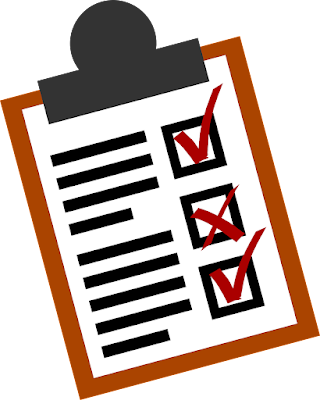How to Write a Good Research paper
While this list suggests that the production of such a paper is straightforward and linear, the actual process of producing a research paper is often complex and recursive, so please consider this outline as a flexible guide.
Discover, reduce and focus a researchable subject
- Try to choose a topic you really want
- Try to write your way to a subject
- Talk to your teacher and peers about your subject
- Ask your topic to answer a question or solve a problem
Source selection, selection and reading
You will have to look at the following sources:
- Library catalog, periodic indexes, bibliographies, instructor's suggestions
- primary sources vs. secondary sources
- Newspapers, books, other documents
Information grouping, sequencing, and documentation
The following systems enable you to keep organized:
- a method for bibliography card sources
- a material organization scheme according to its relative relevance
- a note-taking system
Writing an outline and a prospectus
Take the following questions into account:
- What's the subject?
- Why is it important?
- What is the relevant background material?
- What is my thesis or statement of purpose?
- What corporate plan will best support my purpose?
Writing the initiation
- You will have to accomplish the following things in the introduction:
- Present pertinent contextual or background material
- Defining terminology or concepts when required
- Explain the focus and objective of the paper
- Disclose your organizational plan
Body Writing
- Use your outline and brochure as flexible guidelines
- Create an essay on your points (i.e. don't allow your sources to structure your paper)
- Integrate your sources into your debate
- To summarize, analyze, explain, assess, and not just report published work
- Moving up and down from generalization to varying degrees of detail to generalization
Conclusion Writing
- If your paper's argument or thesis is complex, you may need to sum up your reader's reasoning.
- If you haven't expressed the meaning of your findings before your conclusion or if you proceed inductively, utilize the end of your paper to add your arguments to clarify their meaning.
- Move from a detailed to a general level that restores the subject to the context of the introduction.
- Perhaps advise what additional research is needed on this area.
Review of the final draft
Comprehensive organizational checks: logical introductory flow, coherence and body depth of the topic, the efficiency of conclusion.
The level of paragraph concerns: thematic phrases, order of ideas within paragraphs, use of details in support of generalizations, summary phrases if necessary, usage of paragraph-by-paragraph transitions.
Sentence level concerns: phrase structure, word choices, punctuation, orthography.
Documentation: consistent use of one system, citation of all material that is not common knowledge, suitable use of endnotes or footnotes, the precision of the lists mentioned. Documentation:


No comments:
if you want any help about arduino and nodemcu you contact me freely